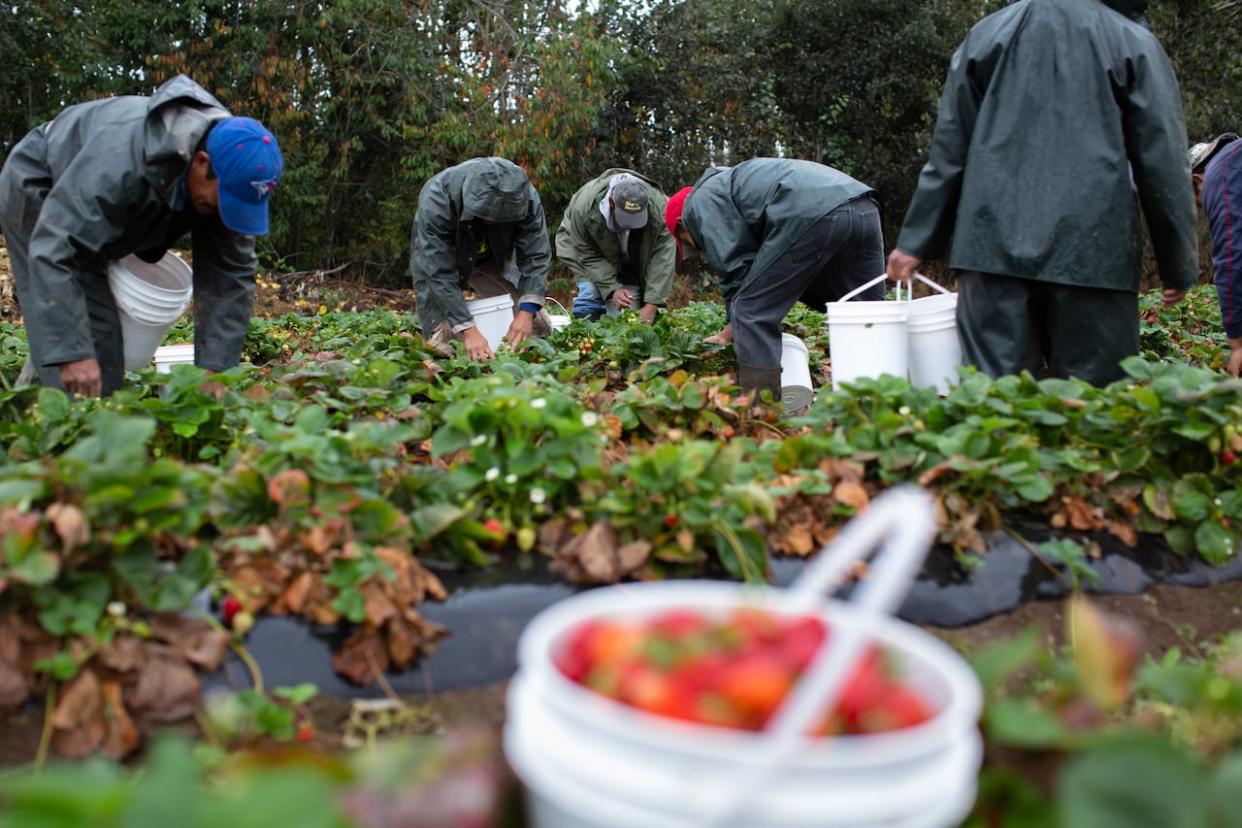Senate report on temporary foreign workers compared to putting 'Band-Aids on bullet wounds'

For all the detail in a Senate report on Canada's temporary foreign worker program about its problems, it is very short on solutions, says P.E.I.'s Cooper Institute, which advocates for temporary foreign workers.
"It's pretty frustrating," said Ryan MacRae, a program co-ordinator for the Charlottetown-based institute's Migrant Worker Program.
"They did not address the root causes that workers face from their tied work permits and closed work permits … They're putting more Band-Aids on bullet wounds."
The report by the Senate's standing committee on social affairs, science and technology was released last week.

The Senate report fails to get to the roots of the problem in the program, says Ryan MacRae of the Cooper Institute. (Submitted by Ryan MacRae)
Committee chair Sen. Ratna Omidvar told Island Morning's Laura Chapin that the program is clearly in need of major revisions.
"The system is 50 years old. It has been added to piecemeal by piecemeal," said Omidvar. "There is no strategy to it anymore."
Expanding work permits
One of the key findings of the committee is that the current program is not working well for anyone, said Omidvar.
Established in 1973, the program was meant to be a last resort for employers who could not find workers in Canada. Now it is anything but that. Many businesses — and some whole industrial sectors — rely on temporary foreign workers to function.
For example, an estimated 40 per cent of P.E.I.'s agricultural workforce is made up of temporary foreign workers.

The flexibility of the program's work permits needs improvement, says Sen. Ratna Omidvar. (Global Diversity Exchange/Ryerson University)
The top recommendation of the Senate report is the establishment of a Migrant Work Commission, an independent body that would coordinate policy for the benefit of everyone using the system.
The report also points in particular at the system of closed work permits. These permits issued to temporary foreign workers require that they work in particular jobs for particular companies. This can make them vulnerable. Leaving a bad job situation, or even an abusive one, can mean giving up the right to stay in Canada.
"Closed work permits, where an employee is tied to one employer and one employer alone, creates the conditions for abuse," said Omidvar.
The permits can also cause problems for employers, the committee found.
Companies cannot move employees to jobs where they are needed. If work runs dry in one area, they can't be moved to another. For example, a worker may be needed on a fishing boat one month, and in a processing plant the next. Nor can an employee be promoted to another job if that is appropriate.
"At the heart of this is flexibility — flexibility for the employee to work in another place in the same sector, flexibility for the employer to also hire from a pool of employees and move them around," said Omidvar.
Instead, the committee recommends a system of work permits tied to particular sectors, and perhaps to regions.
Permits need far more flexibility, says advocate
At the Cooper Institute, MacRae said that wouldn't go far enough to protect workers.
"It's a closed work permit, kind of with an asterisk, really," he said. "Employers often know each other. These are small communities, small circles."
Workers who are being exploited need the ability to move well away from the influence of their initial employer, argued MacRae. The close-knit communities of a sector within a region will not give them the opportunity they need to truly escape.
MacRae said he doesn't understand the government's reluctance to get rid of closed work permits altogether.
"Maybe we're asking the wrong questions. Why is it that employers might want to have that control over their workforce? Why is it that workers might want to leave?" he said.
"When you have a system that is built on exploited labour, no matter what you do to patch that, when it's got its foundations built on that precariousness of migrant labour, then all these Band-Aids are not going to address the root causes."
While the program has many problems, MacRae said it is important to retain it in some form. He noted it is one of the only ways for working-class people to immigrate to Canada, and said they are as vital to the economy as those in other occupations.

